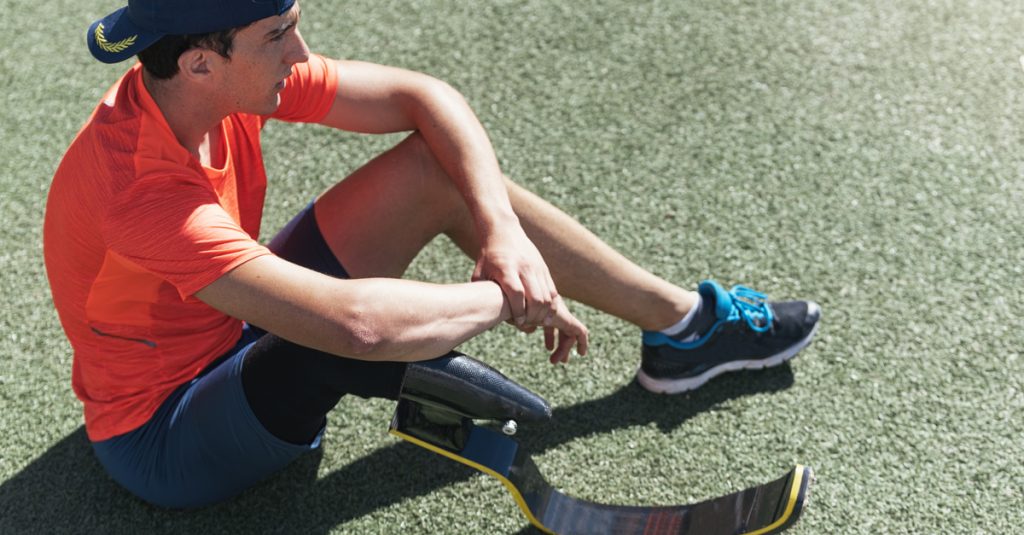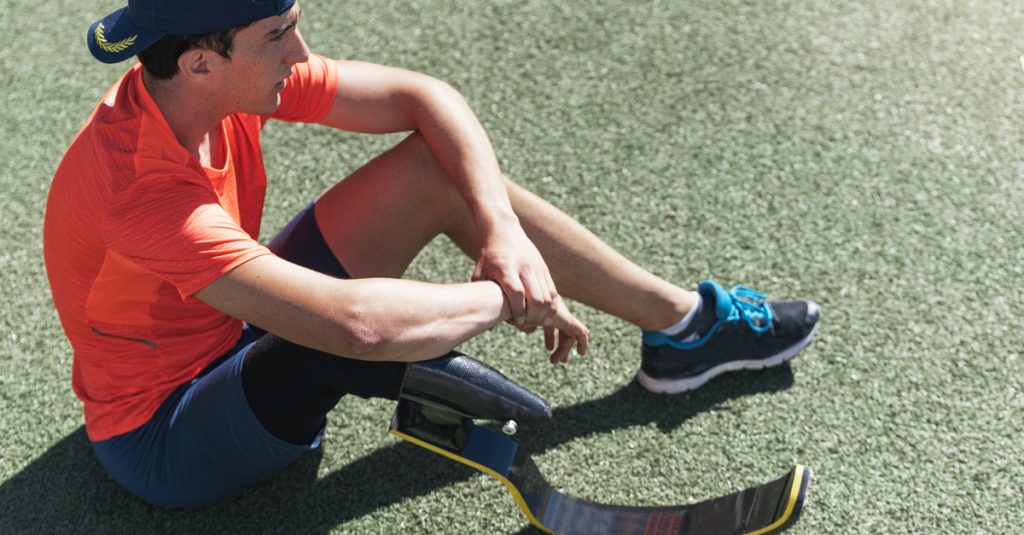We’re in the thick of sports season, and from now through the end of spring, our kids will be hitting the fields and courts in full force.
If one of your children wears a prosthesis, playing sports brings additional challenges beyond the typical ones facing amputees with an artificial limb. But with a few tips, your athlete can take care of his or her prosthesis and perform like a champ.
Keep the Prosthesis Clean and Dry
Sports and moisture have a long relationship. Sometimes you’re caught out in the open on the field during a downpour. And no matter what the weather, playing sports always delivers another type of moisture: sweat.
It’s important that your child keep their prosthesis clean and dry. You don’t want bacteria to spread, and you want the integrity of the prosthesis and everything that goes with it to stay strong.
Keep the external surfaces of the prosthesis dry. Be sure to clean the inner components, like socks and liners, after every event. Use warm water and soap, and finish by spraying it down with an alcohol-based cleaner.
If your child gets into the habit of cleaning his or her prosthesis after practice, exercise, or a game, it’ll be a lot easier to care for the artificial limb.
Inspect the Prosthesis after Every Outing
Sports can be rough. A prosthesis is vulnerable to sudden contact as well as the usual wear and tear of being worn, which is accelerated during a rough-and-tumble event.
Make sure your child inspects their prosthesis after every practice or game. Look for loose or warped components. Be vigilant for any motor function that appears sluggish, such as if a joint isn’t allowing full movement. Check for cracks, too, and listen carefully for any unusual noise.
If something abnormal appears, tell your prosthetist so it can be checked out and repaired if necessary.
Care for the Residual Limb
Caring for a prosthesis doesn’t extend to just the device itself; it also means taking care of the residual limb.
Playing sports puts a lot of pressure on the residual limb and causes friction and contact between it and the prosthesis in new ways beyond what you get just by walking. This friction can cause irritation that can easily result in sores and blisters if you’re not careful.
Talk to your prosthetist about lotions and gels that may be appropriate to reduce this friction. And wash the residual limb with antibacterial soap after every session or game. You don’t want your athlete to get an infection.
Follow these tips and your child will be playing like a champion all throughout the season.
BioTech designs and manufactures prosthetic limbs for people suffering from limb loss. We treat every patient with compassion and respect, and work hard to deliver superior service and prosthetic devices that change lives. Recognize your possibilities. Contact us today for more information.

